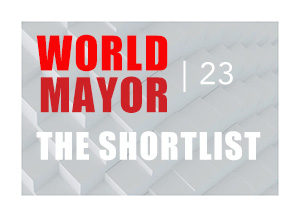Due to systemic inequalities that occur on local, regional, national, and international scales, some communities are disproportionately affected by climate change. These communities may include, but are not limited to, women, elderly people, children, racialized peoples, LGBTQIA+ people, and migrants. Additionally, which communities are disproportionately affected differ across regions, and thus each should be treated uniquely, recognizing that solutions must be adapted to meet the local context.
When responding to the climate emergency with the urgency that it requires, governments can overlook communities that are disproportionately affected by climate change and make long-lasting policy decisions that can further intensify already-existing inequalities. Just and equitable decision- making must be prioritized to ensure holistic policy development and implementation.
Throughout 2023, hundreds of representatives of cities, towns, regions and other subnationals, and the partners that work with them, have come together at Daring Cities 2023 to exchange on best practices, innovative solutions and creative approaches to a just and equitable transformation of our society in the face of the climate emergency. These exchanges have produced a set of key findings from Daring Cities 2023. As we turn our attention to Urban October and COP28, we will use these messages in the coming months and years ahead. We ask our fellow local and regional governments, communities and stakeholders at large and national governments and the intergovernmental community, to engage with and work towards these key findings:
- Justice and equity should be at the core of the response to the climate emergency
- Cities are already providing innovative climate solutions on the ground
- Multilevel action is the new normal in the global climate agenda
Read the document with all the key messages here.




